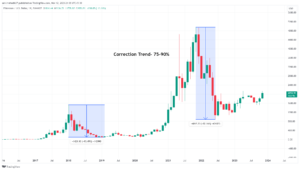The ongoing XRP lawsuit’s latest update saw the plaintiff file an opposition to the defendant’s Motion to Compel interrogatory responses to identify SEC’s Howey Test application theory. The theory determined how the Howey test applies to all of the Defendants’ virtual transactions in XRP over the last 8 years.
#XRPCommunity #SECGov v. #Ripple #XRP The SEC has filed its Opposition to the Motion to Compel it to answer interrogatories identifying its theory of how the Howey Test applies to virtually all of Defendants’ transactions in XRP over the last 8 years.https://t.co/c758L9MoCJ
— James K. Filan 🇺🇸🇮🇪 (@FilanLaw) September 8, 2021
SEC objects defendant’s delayed responses
SEC’s opposition letter to the court asserts that the Defendants’ responses were delayed, regarding the plaintiff’s Interrogatories’ answers. The SEC claims that Ripple intentionally halted its reply, until the end of fact discovery timeframe, i.e., more than seven weeks after receiving the SEC’s first interrogatory responses. As the fact discovery deadline approached, Ripple informed the SEC that they considered the plaintiff’s responses “deficient”.
Furthermore, the SEC highlighted that they had met and conferred with Ripple regarding the five of the responses at issue. At the conference, SEC requested the Defendants to identify specific information that they need from the plaintiff. However, according to the SEC, the Defendants refused and went ahead with filing a Motion to Compel, less than three hours before fact discovery closed.
“At 11:48 p.m. on the same night, minutes before fact discovery closed, Defendants also served the SEC with more than twenty-Eight thousand (28,000) new Rule 36 requests for admission.”, SEC stated in the letter.
SEC asserts Ripple’s responses were evasive
The SEC argues that its responses to interrogatories were substantive in addition to its objections. The plaintiff further claims that Ripple’s history with interrogatory responses has been a projection of its accusation on the SEC.
The plaintiff highlighted that for some SEC interrogatories, Ripple had merely referred the SEC to its own document requests (as opposed to identifying documents that answered the interrogatory). Additionally, for other SEC interrogatories, the plaintiff noted that Ripple failed to provide any substantive response whatsoever.
SEC backed its argument with Defendant’s former use of the Phillies decision
The SEC has also objected to Ripple’s consistent use of the Court’s Phillies decision to the SEC, as grounds for limiting its obligation to respond to the SEC’s interrogatories.
In Phillies, the Court stated, “courts generally resist efforts to use contention interrogatories as a vehicle to obtain every fact and piece of evidence a party may wish to offer concerning a given issue at trial”
Furthermore, the SEC has supported its arguments using the same decision. The plaintiff cites the Federal Rules of Civil Procedure and this Court’s recent guidance that a party “need not catalog every fact or piece of evidence so long as it identifies representative samples and provides…meaningful disclosure.”
Subscribe to our newsletter for free

- 000
- 11
- Ads
- All
- Application
- arguments
- claims
- closed
- Conference
- content
- Court
- cryptocurrencies
- discovery
- documents
- Dropbox
- Federal
- financial
- First
- Highlighted
- history
- hold
- How
- Howey Test
- HTTPS
- identify
- information
- investing
- IT
- latest
- lawsuit
- Long
- Market
- market research
- Newsletter
- offer
- Opinion
- opposition
- Other
- research
- response
- Ripple
- rules
- SEC
- Share
- So
- Supported
- test
- Transactions
- Update
- vehicle
- Virtual
- xrp
- years












